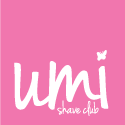Brands
Glossier Thriving In The Direct-To-Consumer Channel
Lush’s Slap Stick Range is Natural, Vegan And Naked
.jpg&width=125&height=125)
Direct-to-consumer brand Lush launched the Slap Stick range this summer. The 40 egg-shaped foundations are said to be all-natural and 100% vegan. The ‘naked’ and solid product is a contrast to heavily-packaged liquid products. Lush’s Kayley Thomas says that reducing plastic packaging is important for the brand, and cosmetics are often one of the worst culprits. If bought online, the products are delivered in small cardboard boxes, which are fully recyclable and with a vegan coating to prevent the box being stained. However, the brand admits that, longer-term, a better packaging solution might be needed, and said it is developing a makeup bag to carry naked products.[Image Credit: © Lush Retail Ltd.]
Pinterest-Enabled Campaign Boosts Brand Awareness, Online Traffic, Sales For Manscaped
Chanel Launches New Male Beauty Line, Starting In South Korea
![]() In September, Chanel will launch its first male beauty line, Boy de Chanel, in South Korea. It will feature three products: a lip balm, eyebrow pencil and a tinted fluid. The line will also be rolled out online from November on the Chanel site. The range is named after Gabrielle Chanel’s lover, Boy Capel.
In September, Chanel will launch its first male beauty line, Boy de Chanel, in South Korea. It will feature three products: a lip balm, eyebrow pencil and a tinted fluid. The line will also be rolled out online from November on the Chanel site. The range is named after Gabrielle Chanel’s lover, Boy Capel.
Kelly Preston Plans To Launch DTC Organic Beauty Brand Breathe

Actress Kelly Preston plans to launch Breathe, a direct-to-consumer brand of organic beauty products in December 2018 or January 2019. At present, the company offers four anti-aging skincare products: a day serum, day crème, night serum, and night crème. Fully funded by Preston herself, Breathe is in negotiation with investors and plans to expand beyond skin care. Preston said she plans to transform Breathe into a totally organic lifestyle brand offering makeup, haircare, and products for men, babies, and the home.[Image Credit: © Kelly Preston]
Companies
Enhancing Its Digital Footprint Might not Be Enough For Avon
 Although Avon has been working to improve its digital image to better reach millennials, there are concerns that it’s still not doing enough. Theodore Delimaris, Associate Consumer Analyst at GlobalData, believes Avon should step up its pace of modernization and raise its sights higher. He thinks the company’s traditional doorstep approach is discouraging existing and prospective representatives. Avon has been improving its online model, with reps reporting higher average orders in the second quarter, boosted by sales in the online channel, which appeals to the millennial consumer. However, Delimaris advises Avon to think beyond modernizing its channel approach, and to consider transforming its product portfolio to be more attractive to younger buyers. [Image Credit: © PublicDomainPictures from pixabay.com]
Although Avon has been working to improve its digital image to better reach millennials, there are concerns that it’s still not doing enough. Theodore Delimaris, Associate Consumer Analyst at GlobalData, believes Avon should step up its pace of modernization and raise its sights higher. He thinks the company’s traditional doorstep approach is discouraging existing and prospective representatives. Avon has been improving its online model, with reps reporting higher average orders in the second quarter, boosted by sales in the online channel, which appeals to the millennial consumer. However, Delimaris advises Avon to think beyond modernizing its channel approach, and to consider transforming its product portfolio to be more attractive to younger buyers. [Image Credit: © PublicDomainPictures from pixabay.com]
New Online Subscription Shave Brand, Umi, Features All-Natural Products
 Umi Shave Club’s founder, Matt Green, is aiming to leverage two key consumer trends: natural products and online subscription shopping. He launched the brand in June 2018, and says his choice of natural products is inspired by his sister, Julia, who died of cancer eight years ago. The brand claims the products are all-natural and have not been tested on animals. The Umi Perfect Shaving Kit contains either a premium 4-blade or six-blade disposable razors, as well as a pre-shave cleanser, a moisturizer and foamless shave gel. Green believes shaving removes skin layers, making it easier for unhealthy skincare products to attack the body. Green has committed to donate 10% of the brand’s net proceeds to women’s health causes, including Breast Cancer Research.[Image Credit: © Umi Shave Club LLC]
Umi Shave Club’s founder, Matt Green, is aiming to leverage two key consumer trends: natural products and online subscription shopping. He launched the brand in June 2018, and says his choice of natural products is inspired by his sister, Julia, who died of cancer eight years ago. The brand claims the products are all-natural and have not been tested on animals. The Umi Perfect Shaving Kit contains either a premium 4-blade or six-blade disposable razors, as well as a pre-shave cleanser, a moisturizer and foamless shave gel. Green believes shaving removes skin layers, making it easier for unhealthy skincare products to attack the body. Green has committed to donate 10% of the brand’s net proceeds to women’s health causes, including Breast Cancer Research.[Image Credit: © Umi Shave Club LLC]
Blue Gems Acquires Cult Beauty Brand ICONIC London
Colgate-Palmolive Invests In Male Grooming Brand In India
 Colgate-Palmolive has purchased a minority stake in the Indian direct-to-consumer online male grooming brand, Bombay Shaving Company, as part of a series A funding round. The company, launched in 2016, now has some 80,000 customers and offers over 30 products, including shave, skincare, beard care, and bath and body items. BSC says it aims to leverage Colgate-Palmolive’s long experience to help it grow the grow the brand, and the funds will be spent on brand building, innovation and improving key capabilities. [Image Credit: © Bombay Shaving Company]
Colgate-Palmolive has purchased a minority stake in the Indian direct-to-consumer online male grooming brand, Bombay Shaving Company, as part of a series A funding round. The company, launched in 2016, now has some 80,000 customers and offers over 30 products, including shave, skincare, beard care, and bath and body items. BSC says it aims to leverage Colgate-Palmolive’s long experience to help it grow the grow the brand, and the funds will be spent on brand building, innovation and improving key capabilities. [Image Credit: © Bombay Shaving Company]
L’Occitane Is Opening A Concept Store In New York
 The L’OCCITANE Group is opening a concept store for its L’OCCITANE en Provence brand on Fifth Avenue, New York. The natural cosmetics brand aims to provide a destination that will communicate to visitors its key features and encourage consumer engagement. The brand is following a “glocal” approach in creating exclusive brand experiences and has recently opened new concept flagship destinations in France, Brazil, China, Singapore, Canada and the United Kingdom. The Paris store, for example, offers food inspired by some of the brand’s iconic ingredients. Christina Polychroni, the brand’s North American Chief Marketing & E-Commerce Office, says that visitors to the New York store can use immersive installations to explore the brand’s history and signature products.[Image Credit: © L’OCCITANE Group]
The L’OCCITANE Group is opening a concept store for its L’OCCITANE en Provence brand on Fifth Avenue, New York. The natural cosmetics brand aims to provide a destination that will communicate to visitors its key features and encourage consumer engagement. The brand is following a “glocal” approach in creating exclusive brand experiences and has recently opened new concept flagship destinations in France, Brazil, China, Singapore, Canada and the United Kingdom. The Paris store, for example, offers food inspired by some of the brand’s iconic ingredients. Christina Polychroni, the brand’s North American Chief Marketing & E-Commerce Office, says that visitors to the New York store can use immersive installations to explore the brand’s history and signature products.[Image Credit: © L’OCCITANE Group]
Beauty Bakerie Grows Its Business Through Social Media and Direct-To-Consumer Business Model
Big Companies Grab Direct-To-Consumer Startups That Fail To Secure Huge Investments
 During the first eight months of 2018, Investors have placed a $1.2 billion bet on business startups that use the direct-to-consumer model to sell products. However, there has been several large acquisitions of DTC startups that have received little or nothing at all before being acquired. For example, natural deodorant brand Native failed to secure venture capital but instead received $550,000 from small investors, according to company founder Moiz Ali. Two years after creating his company, Ali sold Native to Procter & Gamble for $100 million in cash, while remaining CEO. Other deals involving acquisition of DTC startups include watchmaker Movado's plan to purchase DTC watch startup MVMT for as much as $200 million, with $100 million in cash, and mattress company Serta Simmons' plan to merge with Tuft & Needle, a startup that makes and sells foam mattresses in a box and sells them directly to consumers.[Image Credit: © Gerd Altmann]
During the first eight months of 2018, Investors have placed a $1.2 billion bet on business startups that use the direct-to-consumer model to sell products. However, there has been several large acquisitions of DTC startups that have received little or nothing at all before being acquired. For example, natural deodorant brand Native failed to secure venture capital but instead received $550,000 from small investors, according to company founder Moiz Ali. Two years after creating his company, Ali sold Native to Procter & Gamble for $100 million in cash, while remaining CEO. Other deals involving acquisition of DTC startups include watchmaker Movado's plan to purchase DTC watch startup MVMT for as much as $200 million, with $100 million in cash, and mattress company Serta Simmons' plan to merge with Tuft & Needle, a startup that makes and sells foam mattresses in a box and sells them directly to consumers.[Image Credit: © Gerd Altmann]
Glossier Plans To Create Social-Enabled Online Selling Platform For Own Beauty Products
Research & Insights
Direct-To-Consumer Businesses Rely On Social Media To Drive Growth
 Direct-to-consumer companies are using social media platforms to expand their business. Social media has provided startup manufacturing brands with a ready-to-use pathway to market, allowing DTC companies to grow sales rapidly. DTC companies, however, face the challenge of converting their social media followers into loyal customers. For example, sleep brand Simba uses Facebook, Instagram, and YouTube as marketing channels. According to eyewear brand Cubbitts founder Tom Broughton, it is better to focus on acquiring 200 customers who are “super passionate about your brand”, instead of working to have 200,000 followers who know about the brand.[Image Credit: © Gerd Altmann]
Direct-to-consumer companies are using social media platforms to expand their business. Social media has provided startup manufacturing brands with a ready-to-use pathway to market, allowing DTC companies to grow sales rapidly. DTC companies, however, face the challenge of converting their social media followers into loyal customers. For example, sleep brand Simba uses Facebook, Instagram, and YouTube as marketing channels. According to eyewear brand Cubbitts founder Tom Broughton, it is better to focus on acquiring 200 customers who are “super passionate about your brand”, instead of working to have 200,000 followers who know about the brand.[Image Credit: © Gerd Altmann]
Copyright 2026 Business360, Inc.

